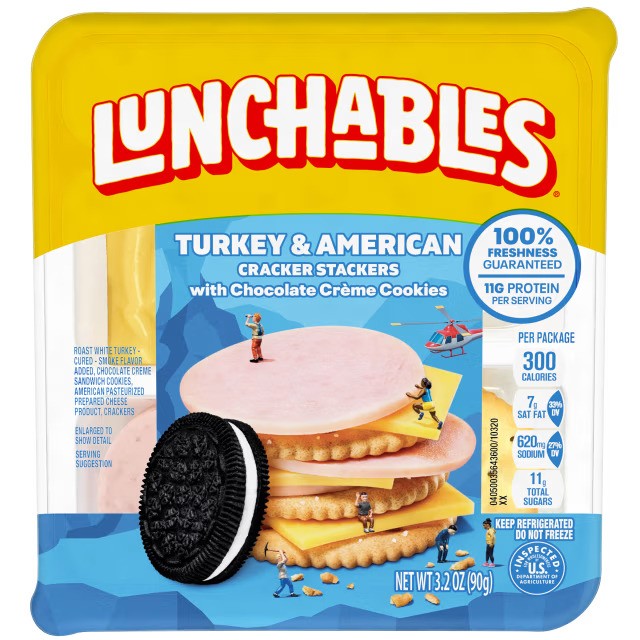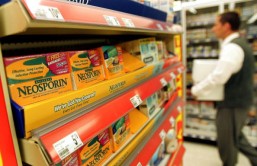
(Photo : Kraft-Heinz, Inc)
Lunchables - the popular kids' meal kits - were found to have elevated levels of lead, a recent report found.
Lunchables - the iconic kids' meal kits, often served in school cafeterias - contain elevated levels of highly poisonous metals like lead and cadmium, a new report claims.
The advocacy organization Consumer Report urged the United States Department of Agriculture to stop serving the meal kits as part of the National School Lunch Program, a federally funded intiative which provides schoolchildren from low income families with free or reduced-price meals.
"Lunchables are not a healthy option for kids and shouldn't be allowed on the menu as part of the National School Lunch Program," Brian Ronholm, director of food policy at Consumer Reports said in a press release. "The Lunchables and similar lunch kits we tested contain concerning levels of sodium and harmful chemicals that can lead to serious health problems over time. The USDA should remove Lunchables from the National School Lunch Program and ensure that kids in schools have healthier options."
Two Lunchables meal kits - Turkey & Cheddar Cracker Stackers and Extra Cheesy Pizza - are available to children recieving free and low-cost school lunches, while several others available for purchase in grocery stores. The meal kits that were found to contain lead were purchased at a grocery store, along with similar products from competitors Armour Lunchmakers, Good and Gather, Oscar Meyer and P3. While Lunchables had the highest levels of lead, all of the products were found to contain at least some quantity of the heavy metal.
"We don't think anybody should regularly eat these products, and they definitely shouldn't be considered a healthy school lunch," Consumer Report chemist Eric Boring said.
Lead and cadmium can occur naturally in the envionment or emerge during the packaging and manufacturing process, according to the report. While none of the products exceeded even California's stringent guidelines for lead quantity, they did in some cases exceed 50% of the amount of lead that be safely consumed in one day.
"That's a relatively high dose of heavy metals given the small serving sizes of the products, which range from just two to four ounces," Boring said.
Childhood exposure to lead can lead to numerous health concerns, including brain damage, slowed development and learning delays, according to the Centers for Disease Control and Prevention. Studies have also found that childhood cadmium exposure can lead to cancer, cardiovascular, respiratory, kidney and neurological problems.
In addition to the presense of heavy metals, the Consumer Report analysis noted that there was at least one phthalate in every tested meal kit. Phthalates are endocrine disrupters that can increase the risk of reproductive problems, cardiovascular disease and cancer.
"None of the products exceeded any regulatory limits, but many researchers think those limits are far too permissive, given the emerging research about phthalates harms," Boring said in the press release.
Kraft-Heinz, the parent company for Lunchables, defended their product in an email to HNGN but did not dispute that there was lead present in the meal kits.
"We've taken great steps to improve the nutrition profile of Lunchables, including recently unveiling Lunchables with Fresh Fruit, in partnership with Fresh Del Monte, and reducing the sodium in all Lunchables crackers by 26%. All our foods meet strict safety standards that we happily feed to our own families. We are proud of Lunchables and stand by the quality and integrity that goes into making them", the spokesperson said.
"The classification of foods should be based on scientific evidence that includes an assessment of the nutritional value of the whole product, not restricted to one element such as a single ingredient or the level of processing."









